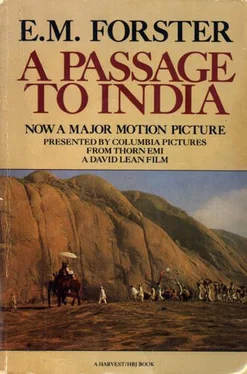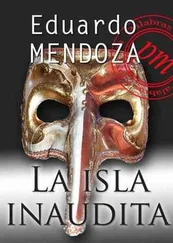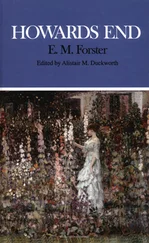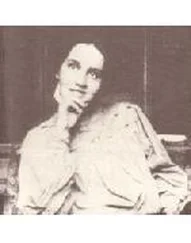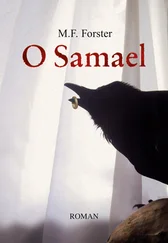Edward Forster - A Passage to India
Здесь есть возможность читать онлайн «Edward Forster - A Passage to India» весь текст электронной книги совершенно бесплатно (целиком полную версию без сокращений). В некоторых случаях можно слушать аудио, скачать через торрент в формате fb2 и присутствует краткое содержание. Город: San Diego, California, ISBN: , Издательство: Harcourt, Brace & World, Inc., Жанр: Классическая проза, на английском языке. Описание произведения, (предисловие) а так же отзывы посетителей доступны на портале библиотеки ЛибКат.
- Название:A Passage to India
- Автор:
- Издательство:Harcourt, Brace & World, Inc.
- Жанр:
- Год:неизвестен
- Город:San Diego, California
- ISBN:0-15-671142-7
- Рейтинг книги:5 / 5. Голосов: 1
-
Избранное:Добавить в избранное
- Отзывы:
-
Ваша оценка:
- 100
- 1
- 2
- 3
- 4
- 5
A Passage to India: краткое содержание, описание и аннотация
Предлагаем к чтению аннотацию, описание, краткое содержание или предисловие (зависит от того, что написал сам автор книги «A Passage to India»). Если вы не нашли необходимую информацию о книге — напишите в комментариях, мы постараемся отыскать её.
A Passage to India — читать онлайн бесплатно полную книгу (весь текст) целиком
Ниже представлен текст книги, разбитый по страницам. Система сохранения места последней прочитанной страницы, позволяет с удобством читать онлайн бесплатно книгу «A Passage to India», без необходимости каждый раз заново искать на чём Вы остановились. Поставьте закладку, и сможете в любой момент перейти на страницу, на которой закончили чтение.
Интервал:
Закладка:
After tea his spirits improved, and he went round to see Hamidullah. Hamidullah had gone to the party, but his pony had not, so Aziz borrowed it, also his friend's riding breeches and polo mallet. He repaired to the Maidan. It was deserted except at its rim, where some bazaar youths were training. Training for what? They would have found it hard to say, but the word had got into the air. Round they ran, weedy and knock-kneed—the local physique was wretched—with an expression on their faces not so much of determination as of a deterinination to be determined. "Maharajah, salaam," he called for a joke. The youths stopped and laughed. He advised them not to exert themselves. They promised they would not, and ran on.
Riding into the middle, he began to knock the ball about. He could not play, but his pony could, and he set himself to learn, free from all human tension. He forgot the whole damned business of living as he scurried over the brown platter of the Maidan, with the evening wind on his forehead, and the encircling trees soothing his eyes. The ball shot away towards a stray subaltern who was also practising; he hit it back to Aziz and called, "Send it along again."
"All right."
The new-corner had some notion of what to do, but his horse had none, and forces were equal. Concentrated on the ball, they somehow became fond of one another, and smiled when they drew rein to rest. Aziz liked soldiers—they either accepted you or swore at you, which was preferable to the civilian's hauteur—and the subaltern liked anyone who could ride.
"Often play?" he asked.
"Never."
"Let's have another chukker."
As he hit, his horse bucked and off he went, cried, "Oh God! "and jumped on again. "Don't you ever fall off?"
"Plenty."
"Not you."
They reined up again, the fire of good fellowship in their eyes. But it cooled with their bodies, for athletics can only raise a temporary glow. Nationality was returning, but before it could exert its poison they parted, saluting each other. "If only they were all like that," each thought.
Now it was sunset. A few of his co-religionists had come to the Maidan, and were praying with their faces towards Mecca. A Brahminy Bull walked towards them, and Aziz, though disinclined to pray himself, did not see why they should be bothered with the clumsy and idolatrous animal. He gave it a tap with his polo mallet. As he did so, a voice from the road hailed him: it was Dr. Panna Lal, returning in high distress from the Collector's party.
"Dr. Aziz, Dr. Aziz, where you been? I waited ten full minutes' time at your house, then I went."
"I am so awfully sorry—I was compelled to go to the Post Office."
One of his own circle would have accepted this as meaning that he had changed his mind, an event too common to merit censure. But Dr. Lal, being of low extraction, was not sure whether an insult had not been intended, and he was further annoyed because Aziz had buffeted the Brahminy Bull. "Post Office? Do you not send your servants?" he said.
"I have so few—my scale is very small."
"Your servant spoke to me. I saw your servant."
"But, Dr. Lal, consider. How could I send my servant when you were coming: you come, we go, my house is left alone, my servant comes back perhaps, and all my portable property has been carried away by bad characters in the meantime. Would you have that? The cook is deaf—I can never count on my cook—and the boy is only a little boy. Never, never do I and Hassan eave the house at the same time together. It is my fixed rule." He said all this and much more out of civility, to save Dr. Lal's face. It was not offered as truth and should not have been criticized as such. But the other demolished it—an easy and ignoble task. "Even if this so, what prevents leaving a chit saying where you go?" and so on. Aziz detested ill breeding, and made his pony caper. "Farther away, or mine will start out of sympathy," he wailed, revealing the true source of his irritation. "It has been so rough and wild this afternoon. It spoiled some most valuable blossoms in the club garden, and had to be dragged back by four men. English ladies and gentlemen looking on, and the Collector Sahib himself taking a note. But, Dr. Aziz, I'll not take up your valuable time. This will not interest you, who have so many engagements and telegrams. I am just a poor old doctor who thought right to pay my respects when I was asked and where I was asked. Your absence, I may remark, drew commentaries."
"They can damn well comment."
"It is fine to be young. Damn well! Oh, very fine. Damn whom?"
"I go or not as I please."
"Yet you promise me, and then fabricate this tale of a telegram. Go forward, Dapple."
They went, and Aziz had a wild desire to make an enemy for life. He could do it so easily by galloping near them. He did it. Dapple bolted. He thundered back on to the Maidan. The glory of his play with the subaltern remained for a little, he galloped and swooped till he poured with sweat, and until he returned the pony to Hamidullah's stable he felt the equal of any man. Once on his feet, he had creeping fears. Was he in bad odour with the powers that be? Had he offended the Collector by absenting himself? Dr. Panna La! was a person of no importance, yet was it wise to have quarrelled even with him? The complexion of his mind turned from human to political. He thought no longer, "Can I get on with people?" but "Are they stronger than I?" breathing the prevalent miasma.
At his home a chit was awaiting him, bearing the Government stamp. It lay on his table like a high explosive, which at a touch might blow his flimsy bungalow to bits. He was going to be cashiered because he had not turned up at the party. When he opened the note, it proved to be quite different; an invitation from Mr. Fielding, the Principal of Government College, asking him to come to tea the day after to-morrow. His spirits revived with violence. They would have revived in any case, for he possessed a soul that could suffer but not stifle, and led a steady life beneath his mutability. But this invitation gave him particular joy, because Fielding had asked him to tea a month ago, and he had forgotten about it-never answered, never gone, just forgotten. And here came a second invitation, without a rebuke or even an allusion to his slip. Here was true courtesy—the civil deed that shows the good heart—and snatching up his pen he wrote an affectionate reply, and hurried back for news to Hamidullah's. For he had never met the Principal, and believed that the one serious gap in his life was going to be filled. He longed to know everything about the splendid fellow—his salary, preferences, antecedents, how best one might please him. But Hamidullah was still out, and Mahmoud Ali, who was in, would only make silly rude jokes about the party.
CHAPTER VII
This Mr. Fielding had been caught by India late. He was over forty when he entered that oddest portal, the Victoria Terminus at Bombay, and—having bribed a European ticket inspector—took his luggage into the compartment of his first tropical train. The journey remained in his mind as significant. Of his two carriage companions one was a youth, fresh to the East like himself, the other a seasoned Anglo-Indian of his own age. A gulf divided him from either; he had seen too many cities and men to be the first or to become the second. New impressions crowded on him, but they were not the orthodox new impressions; the past conditioned them, and so it was with his mistakes. To regard an Indian as if he were an Italian is not, for instance, a common error, nor perhaps a fatal one, and Fielding often attempted analogies between this peninsula and that other, smaller and more exquisitely shaped, that stretches into the classic waters of the Mediterranean.
His career, though scholastic, was varied, and had included going to the bad and repenting thereafter. By now he was a hard-bitten, good-tempered, intelligent fellow on the verge of middle age, with a belief in education. He did not mind whom he taught; public schoolboys, mental defectives and policemen, had all come his way, and he had no objection to adding Indians. Through the influence of friends, he was nominated Principal of the little college at Chandrapore, liked it, and assumed he was a success. He did succeed with his pupils, but the gulf between himself and his countrymen, which he had noticed in the train, widened distressingly. He could not at first see what was wrong. He was not unpatriotic, he always got on with Englishmen in England, all his best friends were English, so why was it not the same out here? Outwardly of the large shaggy type, with sprawling limbs and blue eyes, he appeared to inspire confidence until he spoke. Then something in his manner puzzled people and failed to allay the distrust which his profession naturally inspired. There needs must be this evil of brains in India, but woe to him through whom they are increased! The feeling grew that Mr. Fielding was a disruptive force, and rightly, for ideas are fatal to caste, and he used ideas by that most potent method—interchange. Neither a missionary nor a student, he was happiest in the give-and-take of a private conversation. The world, he believed, is a globe of men who are trying to reach one another and can best do so by the help of good will plus culture and intelligence—a creed ill suited to Chandrapore, but he had come out too late to lose it. He had no racial feeling—not because he was superior to his brother civilians, but because he had matured in a different atmosphere, where the herdinstinct does not flourish. The remark that did him most harm at the club was a silly aside to the effect that the socalled white races are really pinko-grey. He only said this to be cheery, he did not realize that "white" has no more to do with a colour than "God save the King" with a god, and that it is the height of impropriety to consider what it does connote. The pinko-grey male whom he addressed was subtly scandalized; his sense of insecurity was awoken, and he communicated it to the rest of the herd.
Читать дальшеИнтервал:
Закладка:
Похожие книги на «A Passage to India»
Представляем Вашему вниманию похожие книги на «A Passage to India» списком для выбора. Мы отобрали схожую по названию и смыслу литературу в надежде предоставить читателям больше вариантов отыскать новые, интересные, ещё непрочитанные произведения.
Обсуждение, отзывы о книге «A Passage to India» и просто собственные мнения читателей. Оставьте ваши комментарии, напишите, что Вы думаете о произведении, его смысле или главных героях. Укажите что конкретно понравилось, а что нет, и почему Вы так считаете.
